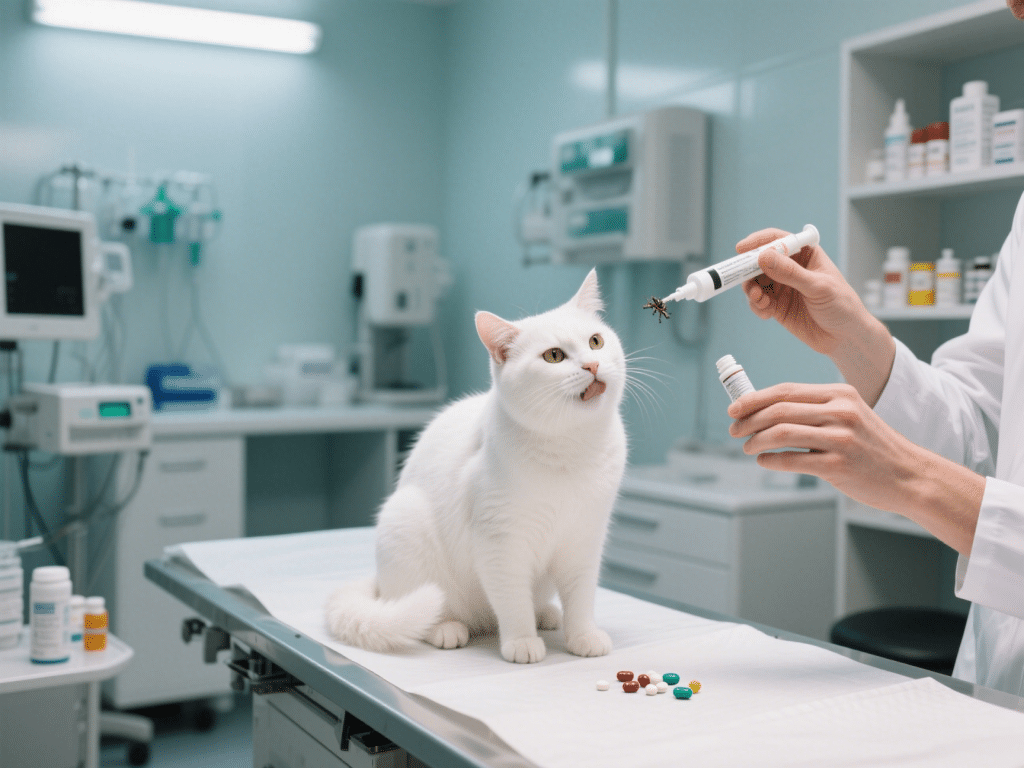Introduction
Kittens often acquire intestinal parasites via the mother or the environment. Regular deworming is essential to safeguard growth, prevent anemia, and avoid zoonotic transmission. This guide provides a comprehensive deworming schedule, dosage guidelines, and best practices to ensure your kitten thrives.
1. Why Deworming Kittens Is Crucial
Common Parasites: Roundworms (Toxocara cati), hookworms (Ancylostoma tubaeforme), and coccidia.
Health Risks: Untreated infections can cause stunted growth, diarrhea, vomiting, and in severe cases, death.
Transmission to Humans: Some feline parasites can infect children and immunocompromised adults.
2. Standard Deworming Schedule
2 Weeks Old
Medication: Pyrantel pamoate suspension.
Dosage: 5 mg/kg orally.
Goal: Eliminate early roundworm and hookworm infections derived from nursing mothers.
4 Weeks Old
Medication: Repeat pyrantel pamoate or switch to fenbendazole if multiple parasites suspected.
Dosage: Pyrantel pamoate 5 mg/kg OR Fenbendazole 50 mg/kg once daily for 3 days.
6, 8, 10, and 12 Weeks Old
Medication: Rotate between pyrantel pamoate and broad-spectrum dewormers (fenbendazole or selamectin for external parasite prevention).
Dosage: Follow package recommendations and veterinarian instructions; typically, pyrantel pamoate 5 mg/kg or fenbendazole 50 mg/kg for three days.
16 Weeks Old
Medication: Final kitten dewormer dose prior to first rabies vaccine.
Dosage: Consult veterinarian for combination deworming based on fecal exam findings; often includes pyrantel and praziquantel.
3. Importance of Fecal Examinations
Initial Check: Perform a fecal float at 8 weeks to identify resistant or uncommon parasites (e.g., Giardia).
Follow-Up: Recheck fecal samples at 12 and 16 weeks to confirm elimination.
4. Selecting Deworming Products
Pyrantel Pamoate: Safe for young kittens, effective against roundworms and hookworms.
Fenbendazole (Panacur®): Broad-spectrum; covers roundworms, hookworms, whipworms, and some tapeworms.
Selamectin (Revolution®): Monthly topical that covers intestinal parasites, fleas, and ear mites; safe from 6 weeks onward.
5. Monitoring and Safety
Observe for Side Effects: Mild vomiting or lethargy may occur; contact veterinarian if severe.
Maintain Hygiene: Disinfect bedding, litter boxes, and toys to prevent reinfection.
Supplemental Care: Provide high-quality kitten food to support recovery and growth.
Conclusion
An age-specific deworming schedule—starting at two weeks and continuing through 16 weeks—ensures kittens remain parasite-free. Combined with regular fecal exams, appropriate product selection, and vigilant hygiene, your kitten will grow into a healthy adult cat.










Comments on "How Often to Deworm Your Kitten: A Complete Guide" :